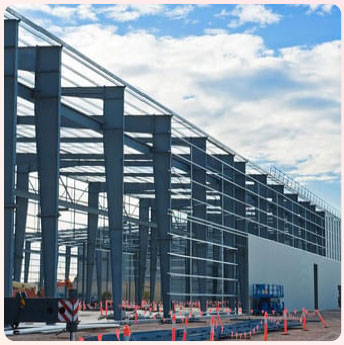About Us
Investors

Investing in Real Estate: The Key to Financial Growth
Types of Real Estate Investments

Residential
Invest in single homes or multifamily buildings to rent out or resell for a profit.

Commercial
Invest in offices, retail stores or warehouses to lease to business owners.

Industrial
Invest in factories or manufacturing facilities to lease to industrial business owners.

Land
Invest in land to resell for profit or develop into residential/commercial properties.
Advantages of Investing in Real Estate
Long-term Growth
Real estate investments appreciate over time, providing a solid foundation for long-term wealth.
Passive Income
Rent payments yield constant cash flow, allowing investors the opportunity to make money without actively doing anything.
Tax Benefits
Investors can use property tax deductions and depreciation to lower their tax burden and increase their earnings.
Inflation Hedge
Real estate investments serve as a buffer against inflation rates, providing investors with a higher potential for profit than other investment options.
Challenges of Investing in Real Estate
High Entry Cost
The initial cost of investing in real estate can be prohibitive, requiring a large sum of money up front.
Market Risk
Real estate investments are subject to economic fluctuations, changing demographics, and other market variables that can impact their value.
Maintenance & Repair
Property owners are responsible for ensuring the upkeep of the property, which can be time-consuming and expensive.
Regulatory Compliance
Real estate investments are subject to various regulations at the local, state, and federal levels, which can impact property value and investment profitability.
Location, Location, Location: Key Factors to Consider

Urban
Invest in cities or urban areas where the population is dense and the demand for real estate is high.

Suburban
Invest in residential properties in suburban areas, where there is a higher demand for more space and slower pace of life.

Coastal
Invest in properties by the water for higher appreciation and rental demand. Great for vacation properties, retirement and relaxation.

Rural
Invest in rural areas for low-priced and undervalued properties with high potential for profit return through development, agriculture or other projects.
How to Finance Your Investment
Saving Money
Start by saving money and creating a budget to ensure you can afford monthly mortgage payments and upkeep costs.
Partnering with Investors
Partner with other investors to pool your resources and share the risks and profits of real estate investments.
Borrowing Money
You can take out a mortgage or home equity line of credit (HELOC) to finance your investment.
